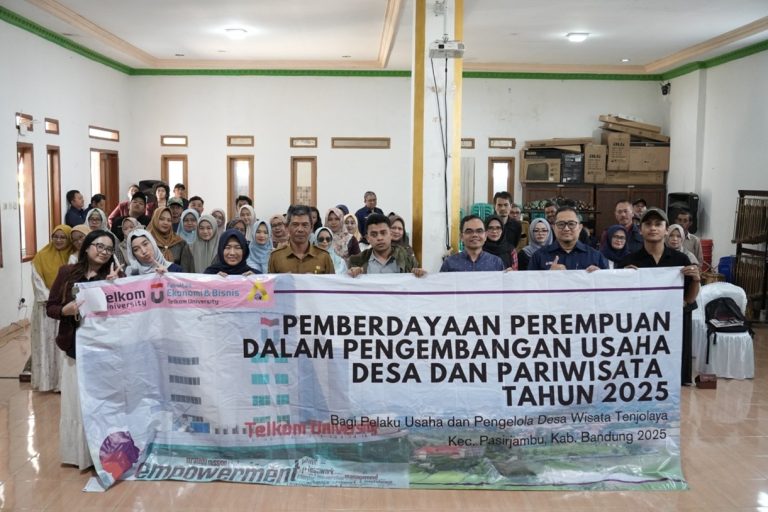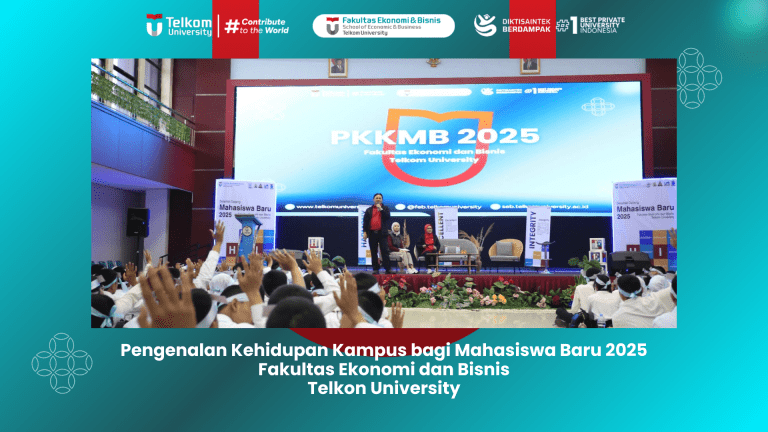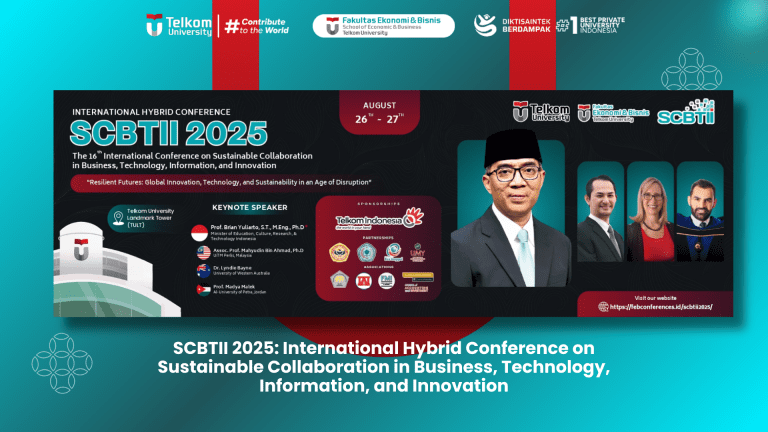Time Management: Key Elements to Increase Productivity in the Business World
Time management is an essential skill that leaders in the business world need to possess to ensure productivity and efficiency in operations. The ability to make the most of time can be the deciding factor between success and failure, especially in the midst of business dynamics that are full of pressures and challenges. This article will review the significance of time management, effective strategies to increase productivity, and the role of Telkom University’s Faculty of Economics and Business in supporting the development of these skills among students.
The Importance of Time Management in a Business Context
Time is one of the most valuable assets in the business world, yet it is often overlooked. Ineffective time management can result in delays, missed opportunities, and decreased productivity. Here are some reasons why time management is crucial:
- Improves Productivity: Efficient time management allows leaders and employees to accomplish more tasks in less time, thereby increasing the operational efficiency of the company.
- Reduce Stress: With good time management, the workload will not pile up, and stress due to approaching deadlines can be minimized. This also contributes to the creation of a healthier work environment.
- Facilitate Better Decision Making: With effective time management, business leaders can give sufficient attention to analysis and deliberation in the decision-making process, resulting in more thoughtful decisions.
- Drive Innovation: With proper time management, companies can allocate resources to research, development, and innovation, without neglecting day-to-day operational tasks.
Effective Strategies for Time Management in the Business World
Here are some approaches that can improve time management and productivity in a business context:
Prioritize Tasks Based on Level of Importance:
- Apply the Eisenhower Matrix technique to distinguish between urgent and important tasks. Focus your attention on tasks that have a significant impact on your business and complete them first.
Utilize Technology for Automation:
- Use project management software and automation tools to reduce repetitive work and monitor project progress. By automating, time normally spent on administrative tasks can be redirected to strategic activities.
Plan a Realistic Schedule:
- One of the most common mistakes is to schedule too much, which can lead to burnout and reduced work quality. Make a realistic schedule with breaks and flexibility in mind.
Apply the Pomodoro Method:
- The Pomodoro method involves a 25-minute period of intensive work followed by a short break. This approach helps to maintain concentration and improve efficiency, especially in completing certain tasks.
Delegate Tasks:
- Don’t hesitate to delegate work to the right team members. This not only helps reduce your workload, but also provides opportunities for employees to develop new skills and make greater contributions.
Evaluate and Adjust:
- Set aside time to evaluate your productivity on a weekly or monthly basis. Identify tasks that take too much time or don’t deliver sufficient results, and adjust your strategy accordingly.
Time Management in the Digital Age
In today’s digital context, time management becomes even more challenging due to distractions from technology, such as constant emails, notifications and social media. To overcome this challenge, some steps that can be taken are:
- Reduce Digital Distractions: Disable non-urgent notifications and set a specific time to check email or social media, instead of doing so continuously throughout the day.
- Utilize Digital Productivity Tools: Use apps like Trello, Asana, or Google Calendar to organize tasks, projects, and meetings. This helps ensure all parties remain coordinated and reduces time wasted.
- Managing Meeting Time Efficiently: Meetings often last longer than planned. Therefore, it is important to set a clear agenda, limit the number of participants required, and ensure each meeting results in concrete decisions.
The Role of Telkom University’s Faculty of Economics and Business in Time Management Development
Telkom University’s Faculty of Economics and Business pays close attention to the development of time management skills among its students. Some of the ways this faculty contributes to equipping students with these skills include:
- Curriculum that Integrates Time Management: Every course, especially those related to business management and entrepreneurship, teaches students to manage their time effectively through structured assignments, projects, and business simulations.
- Utilization of Technology in Learning: The faculty encourages the use of technology in the management of assignments and projects, such as through online project management platforms. Students are taught how to use these tools to organize their work efficiently.
- Soft Skills Development: In addition to technical skills, students also receive training in soft skills such as time management, prioritization, and productivity through various seminars, workshops, and extracurricular activities.
Training for Future Career: Telkom University is committed to preparing its students for the challenges of the real world, where time management skills are a critical success factor. Through internships and industry collaborations, students gain practical experience in managing their tasks in a professional environment.
Time Management Challenges and Solutions
Despite the importance of time management, many individuals have difficulty in managing their time efficiently. Here are some common time management challenges and their solutions:
- Procrastination: One of the biggest obstacles in time management is the tendency to procrastinate. To overcome this, it is recommended to divide the work into small parts and set realistic deadlines for each.
- Excessive Workload: Sometimes, too many tasks can lead to time wastage. The solution is to learn to reject less important tasks and focus more on priorities that are truly significant.
- Lack of Concentration: Internal and external distractions often interfere with concentration. Adopting techniques such as mindfulness and short meditations can help improve focus and keep attention on the task at hand.
Summary
Time management skills are crucial to maintaining productivity and achieving success in business. By implementing the right time management strategies, business leaders can maximize available resources and ensure efficient achievement of company goals. Telkom University’s Faculty of Economics and Business not only provides students with academic knowledge, but also practical skills that will support them in managing their time better in the real business world.
With effective time management, every individual in the organization can work productively, reduce stress, and ensure better and sustainable achievement of business goals.




